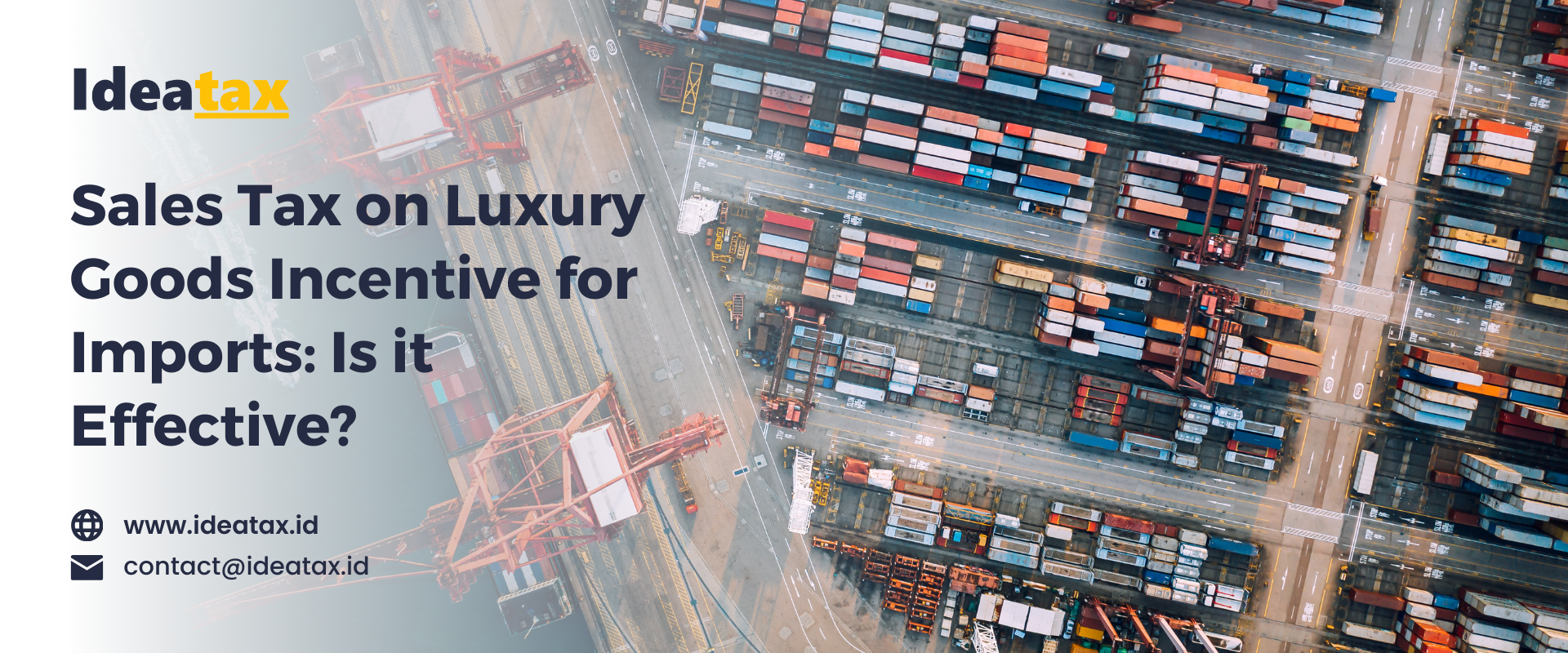Hello, is there anything we can help?

Jakarta, Ideatax -- Gaikindo (2023) reported that vehicle imports in Indonesia in the period January to December reached 88,915 units. When compared to the previous year's period, the number of vehicle imports in Indonesia in 2023 increased by 6.74%. In 2022, the number of vehicle imports in Indonesia amounted to 83,298 units (Gaikindo 2023). When compared to before the COVID-19 pandemic, the number of vehicle imports in 2023 increased by 20.3%. In 2019, the number of Indonesian car imports amounted to 73,876 units.
If the data is broken down by month, the highest imports during 2023 occurred in May. In that period, the number of vehicle imports reached 13,265 units. On the other hand, when detailed by brand, Toyota is the first-ranked brand that imported the most vehicles from January to November 2023, with a total import of 33,592 units. The second and third positions are occupied by Mitsubishi Motors and Suzuki, with a total vehicle importation of 12,630 units and 10,746 units from January to November 2023 (Tempo 2023).
However, when viewed globally, domestic car sales in 2023 will have decreased. Gaikindo reports that wholesale car sales in 2023 will be 1,005,802 units. This number decreased by 4% compared to the same period the previous year. In 2022, the number of domestic car sales in Indonesia reached 1,048,040 units (Gaikindo 2024).
Therefore, to increase domestic car sales while providing a boost to the automotive industry after the COVID-19 pandemic, the government issued Regulation of the Minister of Investment/Investment Coordinating Board Number 6 of 2023 concerning Guidelines and Governance for the Provision of Incentives for Importing and/or Delivering Four-Wheeled Battery-Based Electric Motor Vehicles in the Context of Accelerating Investment. In its considerations, it is stated that in order to accelerate the implementation of the Battery-Based Electric Motor Vehicle program and the formation of the Electric Vehicle ecosystem, as well as to increase the competitiveness of Electric Vehicle investment, it is necessary to have policy support in the form of fiscal incentives in the form of import duties and luxury goods sales tax.
Through this regulation, the government stipulates that taxpayers can be given incentives in the form of import duties at a rate of 0% and a Sales Tax on Luxury Goods or Pajak Penjualan atas Barang Mewah (PPnBM) borne by the government for the importation of CBU (completely built-up) electric cars. In addition, through this provision, the government also regulates that taxpayers can be given incentives in the form of import duties at a rate of 0% and PPnBM borne by the government for the importation of CKD (completely knocked-down) electric cars with the achievement of the domestic component level, or tingkat komponen dalam negeri (TKDN), between 20% and 40%.
However, to obtain the facility, there are several requirements that the taxpayers should meet:
- Taxpayers who want to get a 0% import duty facility and government-borne STLG must commit to building electric vehicle manufacturing facilities in Indonesia.
- Taxpayers who have invested in manufacturing facilities for motorized vehicles based on internal combustion engines commit to transfer production to electric vehicles, either partially or wholly.
- Taxpayers who have invested in electric vehicle manufacturing facilities should commit to increasing capacity and production plans in Indonesia.
In the short term, this provision will erode revenue due to the provision of import duty at 0% and STLG borne by the government. However, in the long run, this provision will increase the amount of investment in Indonesia, which will ultimately have a multiplier effect on tax revenue.
However, the government has missed something in the provision. It does not regulate the minimum investment amount that must be invested by taxpayers to obtain the fiscal incentive facility. If it is not regulated, it is feared that the amount of fiscal incentives issued by the government is greater than the amount of investment invested by investors. As a result, the tax expenditure incurred by the government does not provide added value for increasing investment in the country.
To overcome this issue, the government can issue derivative regulations that govern the amount of minimum investment that must be deposited by capital owners to obtain fiscal incentives. In addition, the government can also provide fiscal incentives in the form of government-borne STLG and import duties proportionally according to the amount of investment invested by taxpayers.
It is important to understand that fiscal incentives must be provided in a timely, targeted, and temporary manner. Timely means that fiscal incentives must be given at the right time when the industry needs government support in the form of a stimulus. Targeted means that fiscal stimulus is given to certain groups in an industry that requires government participation. Temporary means that fiscal incentives are given within a certain period and are not given for a long period. This is intended so that the fiscal incentives provided by the government are given on target and are not diluted by inflation or rising interest rates.
References
Gaikindo. 2023. Data Impor 2022. Desember 31. https://files.gaikindo.or.id/my_files/index.php.
—. 2023. Data Impor Kendaraan 2023. Desember 31. https://files.gaikindo.or.id/my_files/index.php.
—. 2024. Penjualan Mobil Domestik Melambat sepanjang 2023. January 1. https://www.gaikindo.or.id/penjualan-mobil-domestik-melambat-sepanjang-2023/.
Tempo. 2023. Impor dan Ekspor Mobil di Indonesia Meningkat hingga November 2023. Desember 20. Accessed Februari 09, 2024. https://otomotif.tempo.co/read/1811727/impor-dan-ekspor-mobil-di-indonesia-meningkat-hingga-november-2023.

